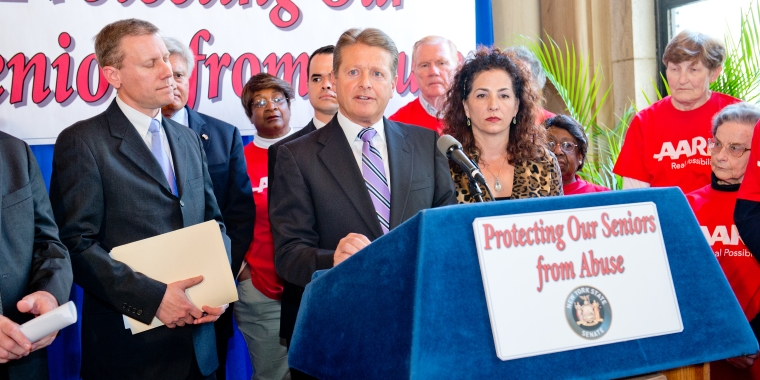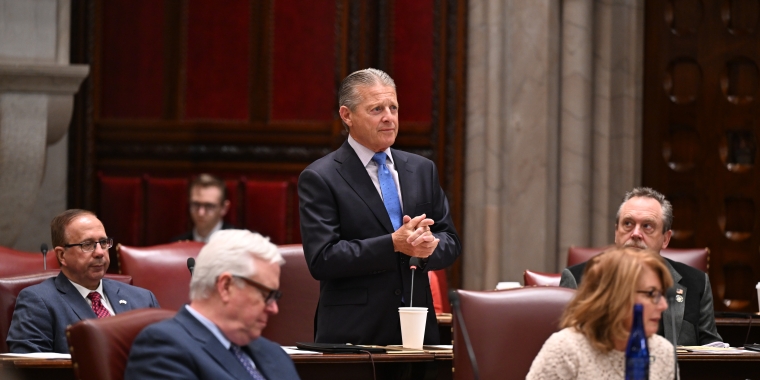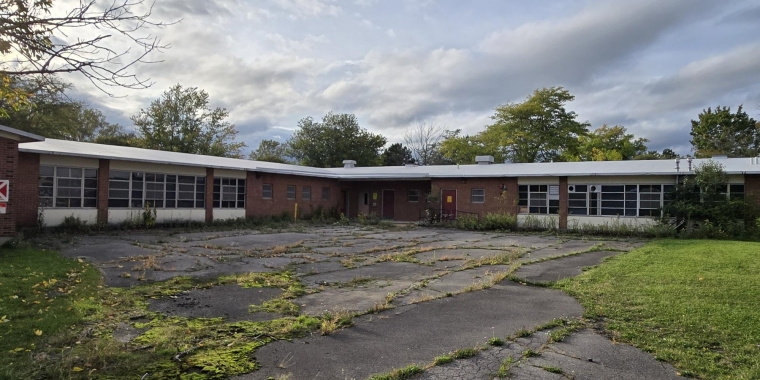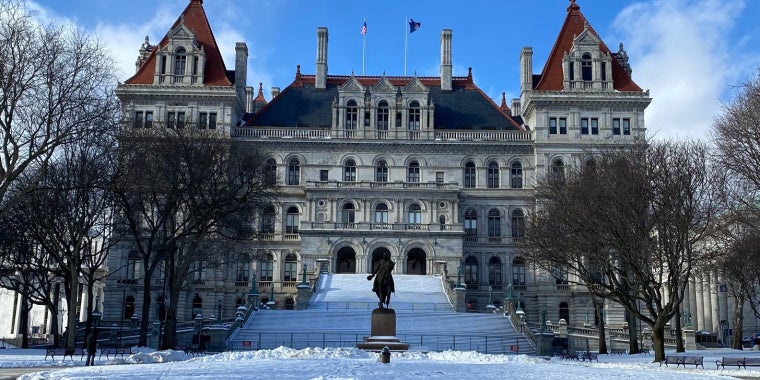Senator Gallivan, Senator Valesky Release Report Exposing the High Prevalence of Elderly Abuse and Exploitation in New York State
Patrick M. Gallivan
May 6, 2014
-
COMMITTEE:
- Crime Victims, Crime and Correction

With Senior Population on the Rise, Experts Predict a Higher Number of Incidents Involving Financial Abuse towards Our Most Vulnerable New Yorkers
Legislators Proposes Preventative Measures that Include Providing Banks the Authority to Reject Deceptive Financial Transactions
ALBANY, NY - Senator Patrick M. Gallivan (R-C-I, Elma) and Senator David Valesky (D-Oneida) today released an extensive report that shows financial abuse amongst New York's seniors to be more prevalent than initially thought. Data obtained by the New York State Office of Children and Family Services project a surge in the number of cases of financial abuse by the year 2030, with nearly 200,000 incidents predicted to occur.
Statistics show a significant increase in New York's senior population, which is the third highest in the United States. Elder abuse manifests in many ways and unfortunately, these incidents often times go unreported due to the startling fact that the abuser is someone that the victim either trusts, is a caregiver, or more often than not, is a family relative.
“Our seniors deserve our respect and our protection. As a former New York State Trooper and Sheriff of Erie County, I believe we must do everything we can to guard against all forms of elder abuse, whether physical, psychological or financial. This legislation will make sure these despicable acts do not go unpunished,” said Senator Gallivan, Chairman of the Senate Crime Victims, Crime and Corrections Committee.
Seniors tend to be vulnerable to certain degrees of financial abuse, including theft, concealment of funds, or even property. Yet while they possess adequate financial assets, they lack the capability to manage these items as they age and begin to suffer cognitive illnesses, such as Alzheimer's or dementia.
"The prevalence of elder abuse in all forms, especially financial, is increasing as our senior population grows. It is incumbent upon us to ensure that there are laws on the books to protect seniors and give law enforcement the tools they need to prosecute offenders," said Senator David Valesky, Chairman of the Senate Aging Committee.
In addition, New York State lacks a statutory definition for prosecuting elder abuse. Instead, it relies upon two separate definitions under the New York State Social Services Law. The first pertains to “adult abuse” for individuals over the age of 18 who may be dependent on someone else, while the other, “financial exploitation” deals with the improper use of one’s funds, property, resources, and so forth.
According to one study referenced in the report, Under the Radar: New York State Elder Abuse Prevalence Study, while documented cases provided by agencies amounted to 3.24 cases per 1,000 seniors in 2010, researchers concluded that the actual caseload of abuse was, in fact, much higher. When using self-reported data collected, researchers estimated that the total amount was actually closer to a rate of 76 per 1,000. In other words, nearly 280,000 seniors experienced at least one type of abuse during that year, with about 155,000 facing financial abuse alone.
Rates of Elder Abuse in New York State: Comparison of Self-Reported One-Year Incidence and Documented Case Data
| Documented Rate per 1,000 | Self-reported Rate per 1,000 | Ratio of Self-Reported to Documented |
NYS – All forms of abuse | 3.24 | 76.0 | 23.5 |
Financial | 0.96 | 42.1 | 43.9 |
Physical and Sexual | 1.13 | 22.4 | 19.8 |
Neglect | 0.32 | 18.3 | 57.2 |
Emotional | 1.37 | 16.4 | 12.0 |
Legislative Action to Combat Widespread Abuse
In order to combat these rising trends and to protect even more elderly individuals from becoming future victims themselves, Senator Gallivan and Senator Valesky propose a package of legislation that will, among other things: (1) prevent deceptive financial transactions from taking place, (2) update collection of data methods to track abuse statewide, and (3) amend existing law to stiffen penalties and deter criminal acts from occurring in the first place.
- S.7177 (Senator Gallivan) seeks to establish that an alleged abuser may not use the defense of obtained consent to take, withhold, or obtain property, where such consent was obtained from a person who the accused knew or had reason to know was mentally disabled.
- S.7178 (Senator Gallivan) allows the prosecution and defense attorneys to preserve the testimony of witnesses who are age 75 or older.
- S.6221 (Senator Valesky) authorizes banks to refuse any transaction of moneys if the banking institution, social services official, or law enforcement agency reasonably believes that financial exploitation of a vulnerable adult has occurred or may occur.
- S.2323-A (Senator Klein) requires the Office of Children and Family Services to define, identify and collect data related to the incidence of elder abuse possessed by state and local agencies. It also mandates the Office of Children and Family Services to establish an inter-agency reporting system that contains a uniform set of standards to collect and analyze information on the incidence of elder abuse.
- S.7179 (Senator Valesky) proposes to allow a prosecutor to obtain medical records, without a privilege waiver, with a subpoena, endorsed by the court, based upon a showing that the patient suffers from a mental disability, and that the patient has been a victim of a crime.
- S.7187 (Senator Nozzolio) amends the penal law to explicitly state that in a prosecution for larceny by false promise, partial performance does not, by itself, prevent a reasonable jury from making such finding from all the facts and circumstances.
- S.2951 (Senator Valesky) expands the definition of “caregiver” under the penal law to include a person who voluntarily, or otherwise by operation of law, (such as an appointed guardian or power of attorney) assumes responsibility of an elderly person so that they would be tried under the “endangering the welfare of a vulnerable elderly person” law.
- S.7188 (Senator Nozzolio) would allow a caregiver to accompany a vulnerable elderly person who is testifying in front of a grand jury. The caregiver may only fulfill their function with the consent of the prosecutor.
"The Association on Aging in New York applauds efforts by Senator Valesky and Senator Gallivan to address the growing problem of elder abuse," said Laura Cameron, Executive Director of the Association on Aging in NY. "Our members, the local offices for aging, are on the front lines every day serving the needs of our older population, and we welcome the support of our state legislative leaders who understand the importance of protecting older New Yorkers so they can successfully age in place with both dignity and independence."
-30-
Senate Majority Coalition News Conference on Elder Abuse can be viewed here:
https://www.youtube.com/watch?v=L_0ZEPrrO8c



